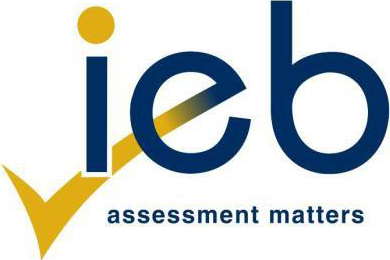GC "Who's Gonna Know?"
“An event where you can receive support, answers and advice on all things friendship-related that you may be too hesitant to ask aloud.”
Students submitted friendship-related questions anonymously via a link/QR code provided on the poster some were edited slightly to make them more understandable or easier to interpret, and then put to a panel for discussion.
The panel consisted of:
Mrs Grobler
Who has been a Grade Director through both Gr 8 and 9 to share insight into the needs of teens in those years.
Niike Neervoort
Our Deputy Head Girl with the Student Wellbeing portfolio, here to give perspective and insight into the life of a student having experienced friendships and relationships in a high school context.
Dr James
Our Head of School here to share with us some of the things she has learnt through her many years of experience.
Neo Monkhe
One of our Gr 11 SRC representatives, who was also included to provide context and insight into the life of a student.
The panel was chaired/moderated by Mrs Henning.
It is important to mention that these panellists were there to provide advice and guidance based on their own opinions of what they think is best; however, this advice is not expert and may not apply successfully to all cases. Students who feel that their challenges needs to be extended past this discussion should please visit our qualified psychologists at Acacia Place.
Reflections from Dr Sally James
Head: Girls' College
“Friendship is an investment, not a transaction. We don't show up for our friends based on how many times they've shown up for us. We show up because we know that when we need them most, they'll be there.” —Simon Sinek
On Monday afternoon last week, I had the privilege of being on a panel as we connected with the Grade 8 and 9 students in a courageous conversation linked to friendship. Friendship is frequently under the spotlight in the Grade 8 and 9 years as our adolescent daughters navigate their social and emotional development in relation to their peers. At this time in their lives, our children are at a vulnerable stage when it comes to friendship, with friendship issues frequently being the cause of unhappiness, hurt and anger. It is perfectly normal for your daughter to have friends or people she prefers to hang out with – we all do, that is human nature. However, what is important is that she learn to be polite, gracious and engaging towards all her peers. One’s character is judged on how we treat others, regardless of whether they are our close friends or not. “Mean girl” behaviour can play out in the adolescent years, frequently as a result of attention-seeking tendencies and in the case of the individual feeling emotionally vulnerable themselves. Acting out and demonstrating mean behavior harnesses attention and a sense of power. It is dangerous when the “popular” girls are the mean ones, since they tend to execute the most power, and sadly are not necessarily the girls who are liked the most, but rather are “liked” out of fear. This is not healthy, and we need to help our daughters to realise this.
Friendship is about being with people who make us feel good, who build us up and support us, people who forgive us for our mistakes and are those with whom we can have brave conversations. Friendship is an ongoing investment and requires time and a great deal of energy. It is also important that our daughters understand that friendships do change, and that this is normal. We have different friendship circles according to our stages and phases of life. We also need to realise that our friends may let us down at times, since none of us is perfect, and the willingness to accept an apology provides insight into the value of a friendship. As adults, we need to support our daughters navigate their friendship challenges, knowing that this jostle is part of the adolescent phase, as our young women grow in confidence and gain greater assurance in who they are and who they want to be with.
I encourage parents to read this useful article on girl friendship by leadership expert and coach Rachel Simmons.
Friendship is Both an Honour and a Challenge
Niike Neervoort
Friendship is both an honour and a challenge. Although friendships play an important role in the daily escapism of a student from the fast pace of school life and academics, high school hardships relating to friendships are not to be underestimated. Friendships, like all other human relationships, require inclined understanding of the other individual’s needs, limits/boundaries, morals and beliefs, and passions. As a student in my last year of high school I have experienced my fair share of friendship loves and loses. These experiences have taught me rare lessons that I am lucky to have learnt, no matter how challenging they were in the moment. These lessons are now mine to share…
1. No Expectations Are Good Expectations:
Being highly demanding and ‘needy’ in a friendship can lead to a friendship’s burnout. Although it is good to set clear standards on how you want to be treated, it is important to stay aware of your friends’ “behind the scenes” life… the details and hardships you might not know about. Expecting something from a friend that does not have the mental capacity to provide, could drain your friendship further and cause someone to retract from the friendship because they don’t feel “good enough” to be in a friendship with you.
In my personal experience, it feels better to receive when you have not asked. Expect basic human decency such as laughs, care and support. Further than that, let your friendships give to you what they are willing to give to you in the current moment.
2. Love Languages Are Different
It is a very common misconception that reciprocation can only take the form of being given back exactly what you gave. For example, if your love language is vocal and you are always expressing your love for your friends through your words, and therefore you expect the same from them. This is a completely false and unrealistic standard to set in a friendship. Individuals express their love in their unique love languages, therefore if you are waiting for someone to reflect your own love language, you might just wait forever.
Learn how your friends express their love, so that you can learn to recognize when they are expressing genuine love for you instead of letting those moments pass you by because you are too busy on your pursuit to find your own love language in other people.
3. Remain An Individual Within Your Friendship
If you and your friends start dressing the same, speaking the same and doing everything together, this should be a sign to step back and evaluate…
- If I were to do something different or outside of the group, how would they react?
- Is there anything that I do not enjoy but am doing because my friends are doing it?
It is very important not to let your friendship group define and limit who or what you are. Otherwise, you lose sight of the best version of you while trying to slip into someone else’ skin.




